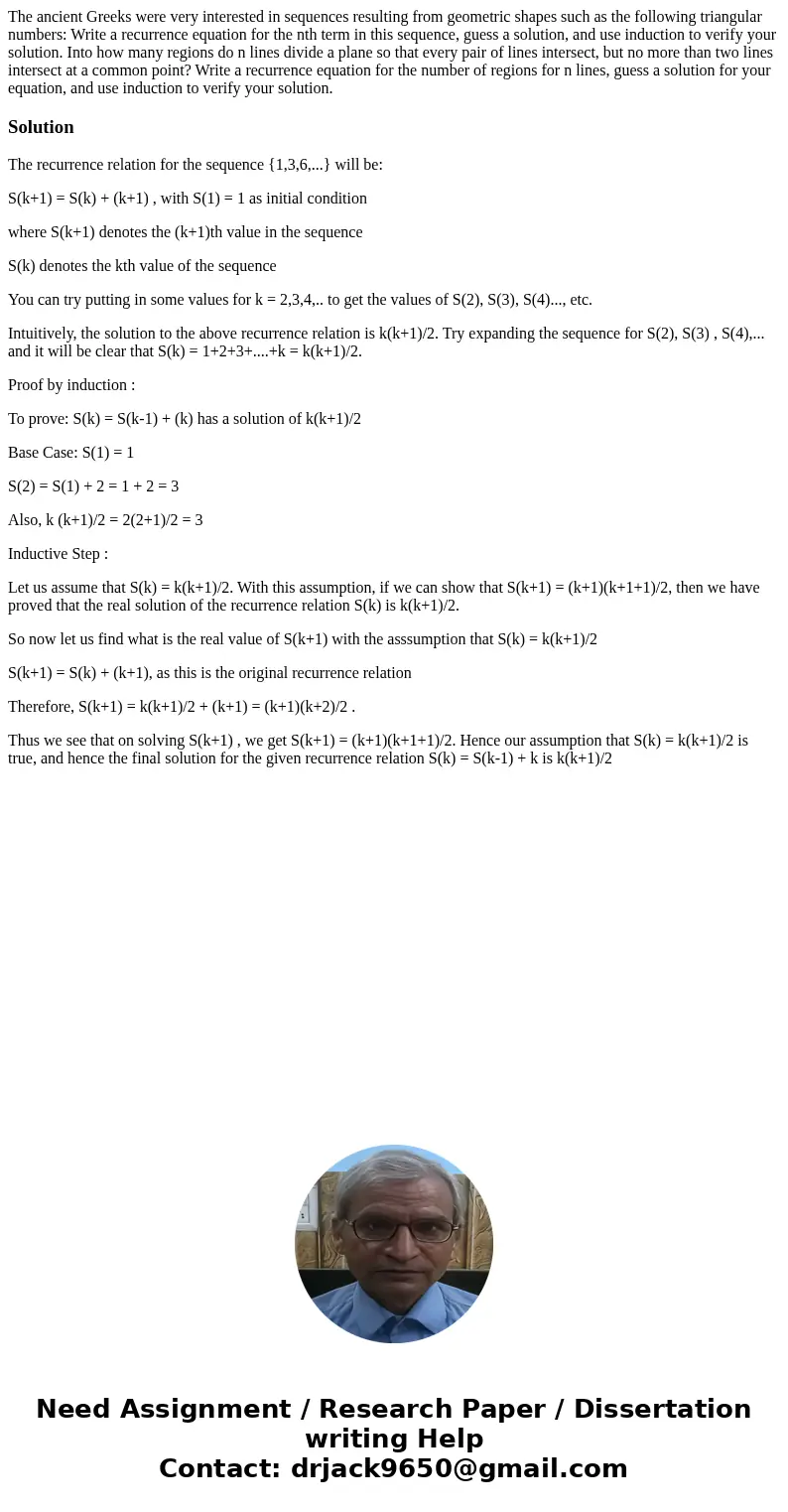The ancient Greeks were very interested in sequences resulti
Solution
The recurrence relation for the sequence {1,3,6,...} will be:
S(k+1) = S(k) + (k+1) , with S(1) = 1 as initial condition
where S(k+1) denotes the (k+1)th value in the sequence
S(k) denotes the kth value of the sequence
You can try putting in some values for k = 2,3,4,.. to get the values of S(2), S(3), S(4)..., etc.
Intuitively, the solution to the above recurrence relation is k(k+1)/2. Try expanding the sequence for S(2), S(3) , S(4),... and it will be clear that S(k) = 1+2+3+....+k = k(k+1)/2.
Proof by induction :
To prove: S(k) = S(k-1) + (k) has a solution of k(k+1)/2
Base Case: S(1) = 1
S(2) = S(1) + 2 = 1 + 2 = 3
Also, k (k+1)/2 = 2(2+1)/2 = 3
Inductive Step :
Let us assume that S(k) = k(k+1)/2. With this assumption, if we can show that S(k+1) = (k+1)(k+1+1)/2, then we have proved that the real solution of the recurrence relation S(k) is k(k+1)/2.
So now let us find what is the real value of S(k+1) with the asssumption that S(k) = k(k+1)/2
S(k+1) = S(k) + (k+1), as this is the original recurrence relation
Therefore, S(k+1) = k(k+1)/2 + (k+1) = (k+1)(k+2)/2 .
Thus we see that on solving S(k+1) , we get S(k+1) = (k+1)(k+1+1)/2. Hence our assumption that S(k) = k(k+1)/2 is true, and hence the final solution for the given recurrence relation S(k) = S(k-1) + k is k(k+1)/2

 Homework Sourse
Homework Sourse